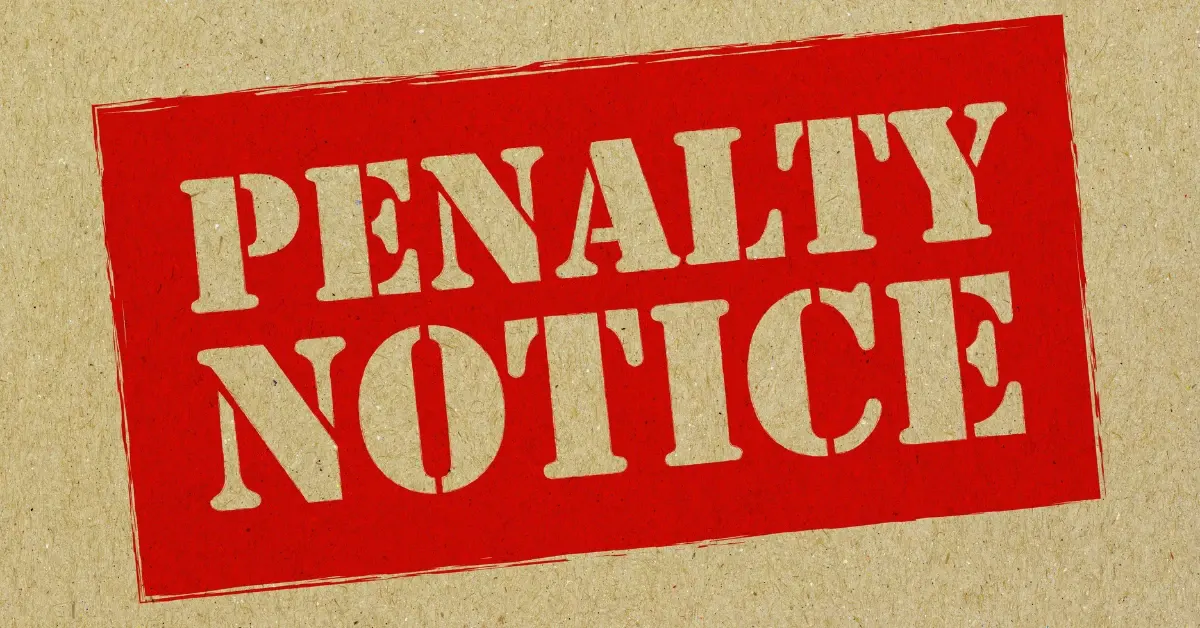If a tenant wants to leave early, they may have to pay the remaining rent until the end of their lease or find a replacement tenant. In some states, landlords have a legal obligation to try and find a new tenant to take over the lease.
Breaking a lease agreement can be costly and stressful for both tenants and landlords. Depending on the circumstances of the early termination, a tenant may be required to pay a penalty fee in addition to any unpaid rent.
However, there are some situations where a tenant may have the right to break a lease without penalty, such as military deployment or extreme financial hardship.

What Exactly Does Early Termination Mean For A Tenant?
What happens if a tenant wants to leave early: defining early termination and explaining the legal consequences for the tenant
Coming to the end of a tenancy agreement, tenants may find themselves wanting to leave early for various reasons.
But what does early termination mean for a tenant? What are the potential legal consequences?
Defining Early Termination
Early termination is when a tenant ends their tenancy earlier than the agreed-upon end date in their tenancy agreement.

This can be done for various reasons, such as the following:
- New job or personal reasons.
- Disliking a particular neighbourhood or area.
- Poor living conditions or maintenance of the property.
As per the tenancy agreement, the tenant may have to give advance notice to the landlord and fulfil their financial obligations.
Explaining The Legal Consequences For The Tenant
A tenant is contractually bound to fulfil their tenancy agreement until the agreed-upon end date. Early termination can lead to various legal consequences such as the following:
- Breaching the tenancy agreement: This can lead to legal action being taken against the tenant.
- Financial damages: The landlord can seek financial damages from the tenant for breaking the tenancy agreement, i.e., replacing tenants, and covering rent loss.
- Forfeiture of the deposit: The landlord can retain the deposit to cover their financial losses.
- Impact on credit score: If the tenant does not settle their financial obligations, it can impact their credit score.
- Difficulty finding future accommodation: Landlords may be hesitant to rent to tenants who have broken a tenancy agreement.
What Can Landlords Do If A Tenant Wants To Terminate The Lease Early?
As a landlord, having a tenant terminate their lease early can be frustrating and financially stressful.
Fortunately, there are a few possible solutions landlords can consider as well as legal procedures to follow when tenants want to terminate their lease early.
Discussing The Possible Solutions For A Landlord
When a tenant wants to leave early, there are some possible solutions for the landlord to consider, which are:
Negotiation
Landlords can negotiate with the tenant to try and come up with a mutually beneficial agreement.
For instance, they might consider reducing the amount of rent that is owed or charging a fee for lease termination.
Advertising
Another option is to start advertising for new tenants. Once a suitable tenant is found, landlords can allow the old tenant to terminate the lease early and move out, then have the new tenant move in.
Buyout agreement
The landlord can also enter into a buyout agreement with the tenant.
This is where the tenant agrees to pay a sum of money to the landlord in exchange for terminating their lease early.
Providing A Guide To Legal Procedures
When dealing with tenants who want to terminate their lease early, landlords need to ensure they follow the correct legal procedures.
Here is a guide to legal procedures landlords can consider:
Check the lease agreement
Before taking any legal action, landlords need to check their lease agreement.
It’s essential to know what is stated in the agreement about termination and any penalties for early lease termination.
Providing a notice
If the tenant is in breach of the lease agreement, landlords can provide a notice.
This gives the tenant a specific period to either remedy the breach or leave the rental property.
Collecting rent
Until the rental property is leased out to another tenant, landlords can collect rent from the tenant who wants to terminate the lease early.
This includes charging for the units’ rent that are vacant or advertising and showing the rental property.
Legal action
As a last resort, landlords can opt for legal action. This can include filing a lawsuit to collect damages or for eviction.
The Financial Implications Of Early Termination
Early termination of a lease agreement can cause a huge headache, both for tenants and landlords. It can lead to significant financial and legal consequences.
Let’s discuss the key aspects related to the financial implications of early termination.
The Provisions In The Lease Agreement Related To Early Termination
Every lease agreement consists of certain provisions related to the termination of the lease.
Tenants who are considering terminating the lease early should go through the agreement in detail to understand the provisions that apply in their case.
Here are some vital factors that you must consider:
Notice period
The notice period required before terminating the lease early should be given serious thought because it may vary depending on the terms.
Most agreements commonly require 30, 60, or 90-day notice.
Early termination fees
Agreements may include an early termination fee which must be paid by the tenant for breaking the lease before the end of the lease agreement.
The precise amount of the fee will be mentioned in the lease agreement.
Subletting the leased premises
Tenants who are considering moving out early should check if the lease allows subletting the leased space.
If it is allowed, they can lease the space to someone else to fulfil the lease obligations, avoiding early termination fees.
Security deposit
Landlords may deduct early termination fees or unpaid rent from the tenant’s security deposit.
It’s important to check the lease agreement to be aware of the landlord’s treatment of the security deposit in case of early termination.
Exploring Possible Penalties For Both Parties
Early termination not only affects tenants but landlords as well. Let’s take a look at the penalties for both parties:
Possible Penalties For Tenants

Early termination fees
As mentioned earlier, tenants may be held responsible to pay an early termination fee.
If tenants move out before the lease agreement ends without providing valid reasons, landlords may claim this fee.
Rent payment
Tenants who terminate a lease early also need to cover the rent amount until the leaser’s obligation ends, or until the leased property is occupied by someone else.
In other words, tenants may owe rent until a new tenant moves in.
Security deposit
Landlords may deduct early termination fees and other dues due from the tenant’s security deposit.
Possible Penalties For Landlords

Empty property
If a tenant leaves the property before the end of the lease agreement, landlords face the challenge of quickly finding new tenants.
It is not uncommon for landlords to face empty properties for some time, which leads to a loss of rental income.
Additional advertising costs and commission fees
The landlord will have to bear additional advertising and marketing expenses to find new tenants.
Also, if they employ a real estate agent to find new tenants, they will need to pay commission fees, which can further dent their revenue.
The Impact Of Early Termination On The Property
As a landlord, it’s not uncommon to encounter tenants who want to end their lease early.
While it can be frustrating, it’s important to address this issue with a clear understanding of the impact it can have on your property.
Let’s explore the steps landlords can take to mitigate that impact.
Providing Guidance On Returning Possession Of The Property
Returning possession of the property is a critical step in the process of early termination. Here’s how you can provide guidance to tenants who want to end their lease early:
- Explain the process in clear terms, ensuring that the tenant understands their obligations and any fees associated with early termination.
- Ask the tenant to document their reasons for leaving early, so you can determine the best way to move forward.
- Clarify what you’ll do once the tenant has returned possession of the property. For example, you might need to perform an inspection or take steps to fill the vacancy.
Identifying Possible Leave-Tenant-Replacement Costs
If a tenant leaves early, there are several costs to consider. Here are some of the key costs you’ll need to bear in mind:
- Advertising and marketing costs for finding a new tenant. You may need to run ads, engage a real estate agent, or hire someone to show the property to potential renters.
- Repairs or maintenance expenses the tenant would have covered had they stayed until the end of the lease. These could include common wear and tear or damage caused by the tenant, which would have been their responsibility to repair.
- Rent loss during the vacating and re-filling process. The longer the property remains vacant, the higher the financial hit.
Tips For Tenants To Avoid Early Termination
Understanding The Lease Agreement
Before signing a lease agreement, tenants should carefully read and understand the terms and conditions.
If a tenant wants to leave early, they should consider the following points:
- Check the lease agreement for any clauses about early termination. Some agreements may allow tenants to end their lease early under certain circumstances such as a job transfer or medical emergency.
- Find out if there are any penalties or fees for early termination. If there are, tenants should budget for these costs if they decide to leave early.
- Discuss the lease agreement with the landlord and ask for clarification if there is anything that is unclear or confusing.
Communicating With The Landlord
Tenants should maintain open and honest communication with their landlords if they want to leave early. Here are some tips on how to communicate effectively:
- Contact the landlord as soon as possible. Do not wait until the last minute to notify them of your intentions to leave early.
- Explain the reason for leaving early and provide any necessary documentation to support your claim, such as a job transfer letter or medical report.
- Discuss potential solutions with the landlord, such as finding a replacement tenant or subleasing the property.
- Follow up in writing, summarizing the conversation and any agreed-upon solutions.
Frequently Asked Questions For What Happens If A Tenant Wants To Leave Early
Can A Tenant Break A Lease Agreement?
Yes, a tenant can break a lease agreement. However, it may result in penalties and fees.
What Happens If A Tenant Breaks A Lease Early?
If a tenant breaks a lease early, they may be responsible for paying rent until the end of the lease term or until a new tenant moves in.
Can A Landlord Hold A Tenant Liable For Damages?
Yes, a landlord can hold a tenant liable for damages beyond normal wear and tear, and deduct it from the tenant’s security deposit.
Does A Tenant Have Any Other Options Besides Breaking A Lease?
Yes, a tenant can try negotiating with their landlord or subletting the rental property to someone else.
Conclusion
Understanding your lease agreement and communication with your landlord is essential if you’re a tenant planning to leave early.
Be aware of potential consequences, but also your rights and options.
You can negotiate, find a replacement, or utilize early termination clauses, ensuring a smoother transition.
Reference
https://guides.sll.texas.gov/landlord-tenant-law/ending-the-lease
